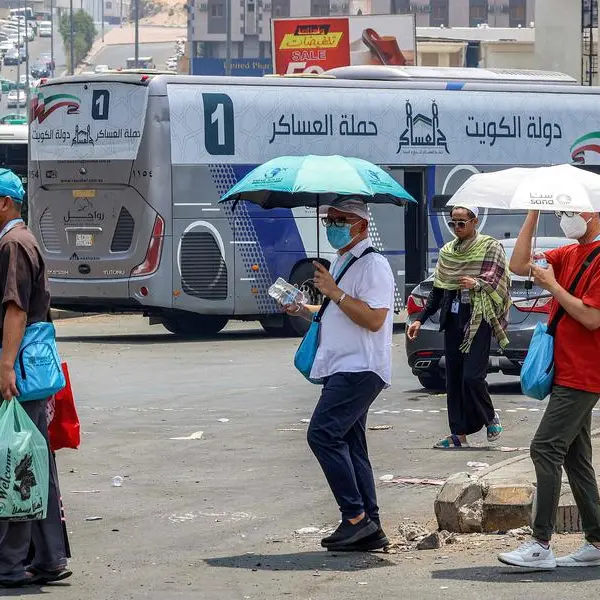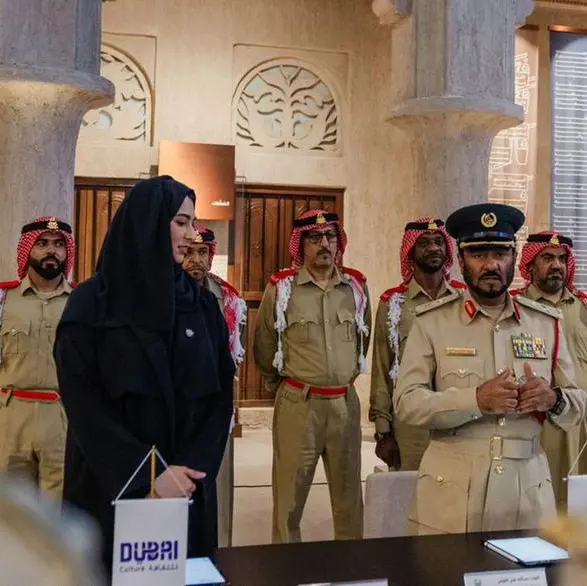PHOTO
Victims falling prey to scammers advertising on social media platforms posing as representatives of licensed companies specialised in completing government services are on the rise.
Several residents, who sought these services in return for a nominal fee in various Emirates, have lodged police complaints after being defrauded.
Security actions
The authorities have confirmed that fake representatives posing on behalf of licensed companies specialised in completing residency procedures, vehicle licenses, apartment rental contracts, enrolment of children in schools have deceived many residents.
The victims found out that they had been targeted by fraudsters who stole large sums of money from them for official transactions that were not completed.
Following the spread of these illegal practices, the Ministry of Interior warned against dealing with those who exploited the pandemic to swindle people by posting advertisements to provide services of completing transactions.
Major General Saif Al Zari Al Shamsi, Commander in chief of Sharjah Police, warned community members against dealing with unofficial accounts on social media or disclosing personal information because fraudsters use it to blackmail victims into obtaining money.
He stated that most of these people belong to organised fraud networks that use social networking sites to conduct their illicit activities and target families and young people in the Gulf countries and the Arab countries in general.
He stressed the need to verify the true identity of the advertisers before dealing with them, not to be deceived by attractive addresses, and not to send them an official document containing personal information.
He stressed that if the fraudsters originate from outside the country, the concerned departments communicate through official channels, such as the International Police (Interpol), to track the accused, arrest and prosecute them, contrary to the belief prevailing among some victims not to report the accused who are outside the country.
The Sharjah Police has also created electronic patrols to eliminate information technology crimes by monitoring suspicious and fake accounts of impersonators.
To official of the Cybercrime department at Sharjah Police said that these activities are carried out by organised networks, pointing to cybercrime, which constituted 39% of the total reports submitted to the concerned departments. "At least 19 reports are received by the concerned department in the police per month," Al Shamsi added.
An official at Dubai Police police said that they had received many complaints related to this kind of fraud, especially during the pandemic.
He attributed the main reasons for some residents communicating with these people for the alleged services is due to the reduce fee offer in comparison to the actual charges of the services.
Covid-19 had earlier witnessed movement restrictions, many expats saw their salaries reduced and children attending online classes; as a result, residents put their trust in such people who send their business cards to prove their credibility.
Penalties
Salim Sahoh, a legal advocate at Sharjah courts, said that the charges against the perpetrators of these crimes include a prison term of no less than two years and a fine of Dh20,000.
Lawyer Khaled Al-Mazmi said that an unlicensed person who impersonates as agent to clear transactions aim to obtain documents and personal data of customers and use them to commit several crimes such as 'impersonation' and falsifying transactions to serve their interests, such as extracting "Etisalat" cards with the names of document owners and selling them to people who may be legally wanted, what implicates the owners of this data.
He pointed out that if the scammers steal money through fraud, the penalty under Article 399 of the Federal Penal Code is "by imprisonment or a fine, and in aggravated circumstance, it may lead to imprisonment for a period not exceeding two years or a fine of no more than Dh20,000."
Al Mazami said, "If these people disclose information, they will be punished by imprisonment for a period of no less than one year and a fine of no less than Dh20,000, or by one of these two penalties, as stipulated in Article 379 of the same law."
He said, "As for civil liability, it is compensation for material and moral damages, according to Article 282 of the Civil Code, which confirms that every harm to others obliges the doer, even if he is not distinguished, to guarantee the damage."
Victims
Salim Obaid Al Baloushi said that he found an account on Facebook of a person claiming to be an authorised representative in clearing transactions and official papers in government agencies. He claimed that he provided services that include renewing vehicle ownership, paying the violations registered on them, as well as clearing the residency procedures for workers, and completing the registration and transfer of children in schools, for a fee of no more than Dh200 for each transaction.
Salim contacted the person on the phone number published in the advertisement and asked for more details. "I was looking for services such as renewing residency visas and issuing visit visas for family members as well as other services related to traffic departments. But I was surprised after I contacted him via (WhatsApp) that he asked me to send him my identification papers (passport and Emirates ID) under the pretext of "opening a file, as a new customer and paying an amount of Dh3,000 to include my name in their companies' database", which made me doubt his credibility and ask him to submit official licenses approved by the relevant authorities, I decided to stop dealing with him."
Fake company license
Abdulatif SwarAl Dahab said that the pandemic had forced him to deal with a transaction clearing office from an advertisements posted on social media.
He contacted them to enquire about the services. A person who claimed to be the company's manager had asked her to pay $150 to open her files and transfer the amount to a bank account in an Arab country, which he agreed and transferred the amount.
The victim added that the 'manager' contacted him again in less than 48 hours via WhatsApp messages, and asked to transfer another $1000 to extract the required power of attorney from the competent authorities, as well as a "customer card" to complete government procedures through authorised representatives in the country.
To prove his credibility the fraudster sent a copy of the office's license and other documents.
Abdulatif was convinced and transferred the required amount. Soon his calls were not responded, which prompted him to file a report with the police to find out that the services were fake and that the documents were forged.
Copyright © 2022 Khaleej Times. All Rights Reserved. Provided by SyndiGate Media Inc. (Syndigate.info).





















